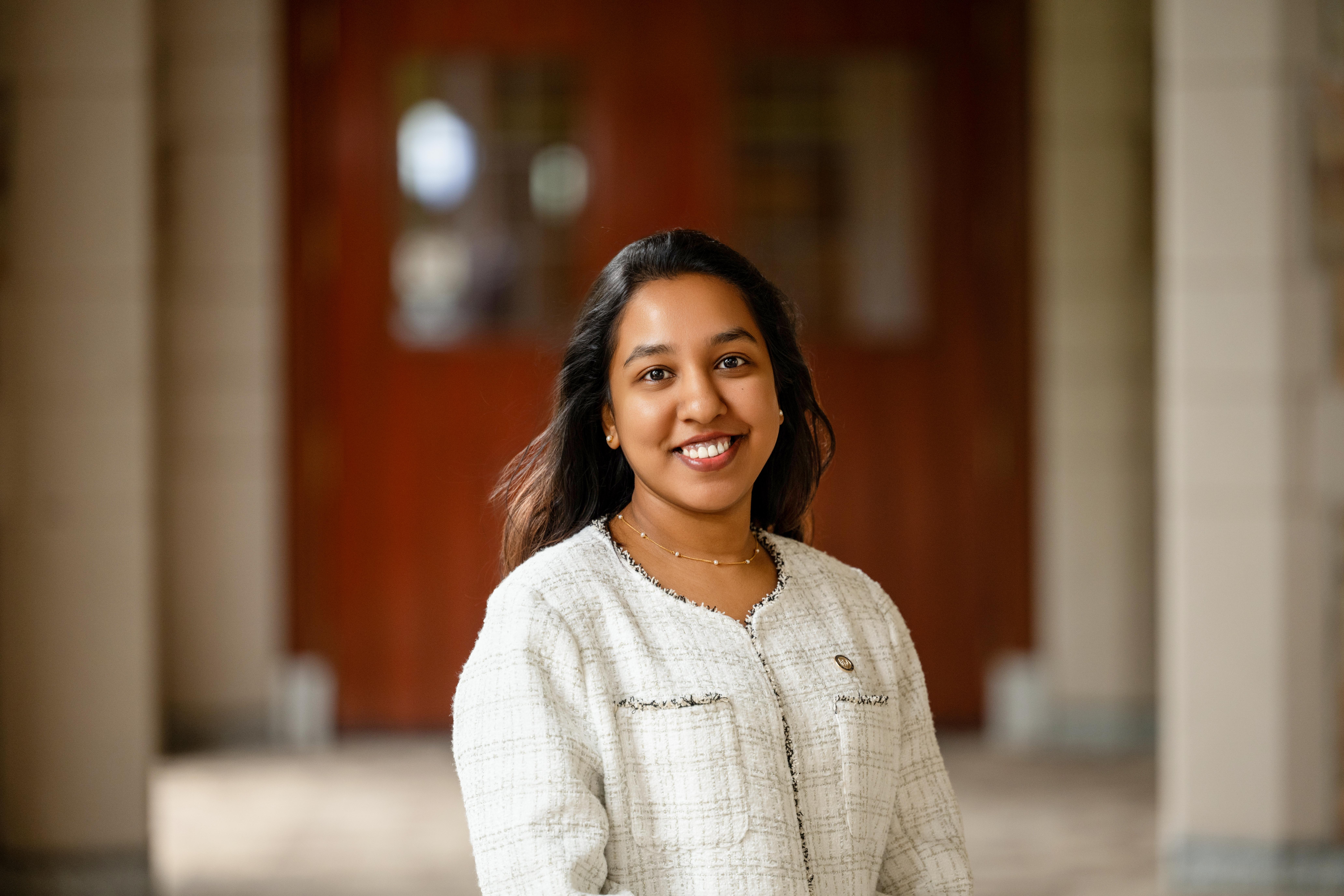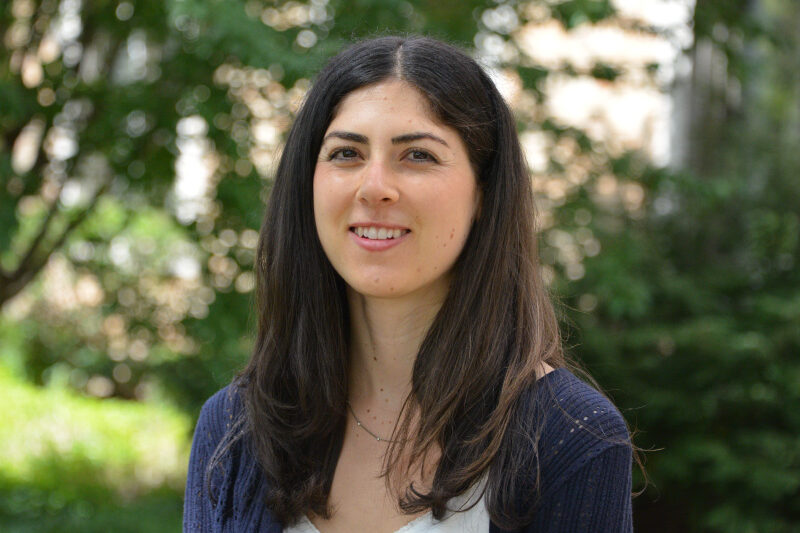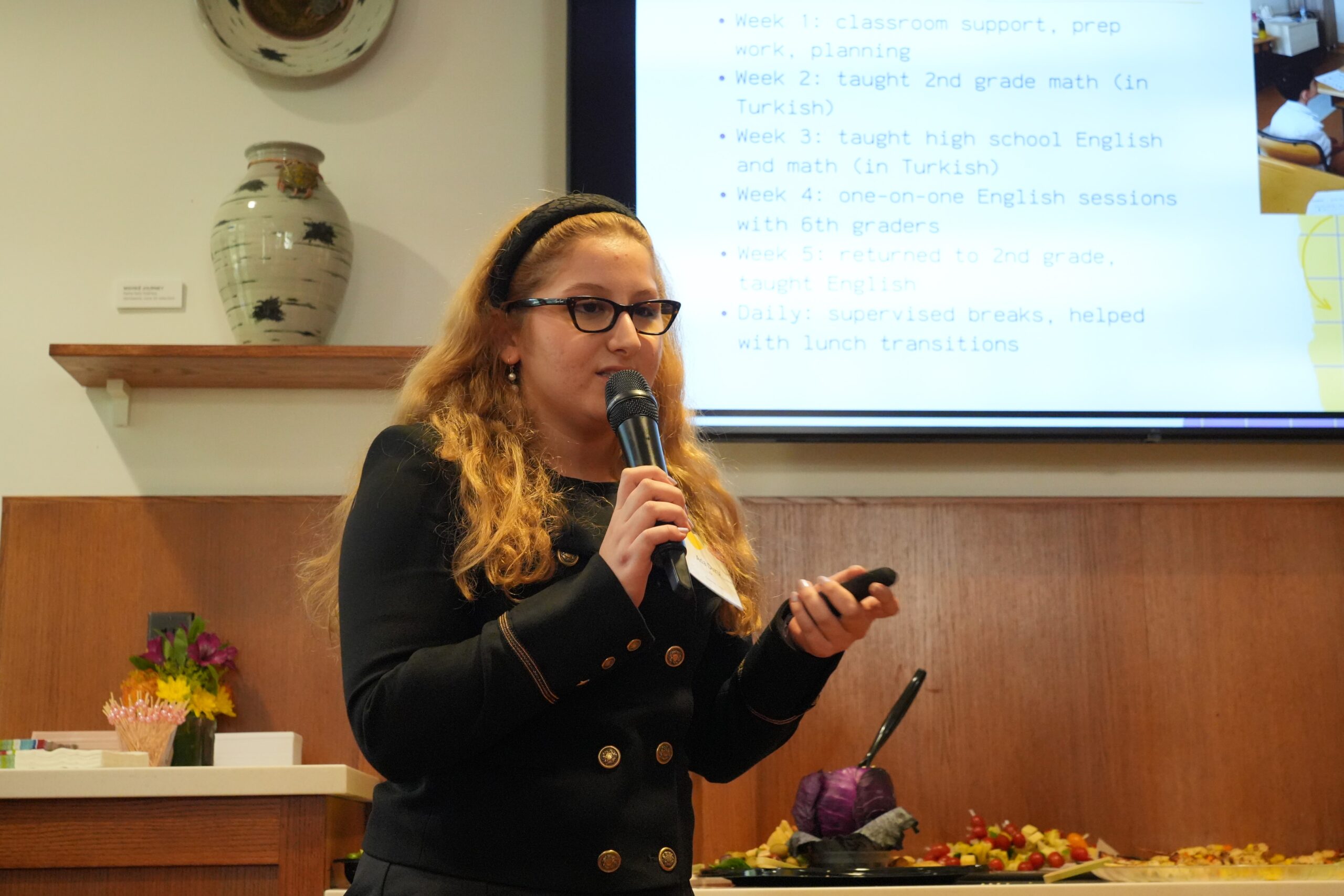ReSearching for the Common Good: Pavithra Rajendran
January 13, 2024
As an interdisciplinary academic institute, the Institute for Social Concerns leverages research to respond to the complex demands of justice and to serve the common good. This series, ReSearching for the Common Good, highlights some of the scholars in our community.

Pavithra Rajendran is a J.S.D. candidate at Notre Dame Law School from Kandy, Sri Lanka.
She previously served as a lecturer in Public and International Law in Sri Lanka. She describes her professional personality as “socio-legal academician” and “multi-faceted feminist.”
After earning LL.B and LL.M degrees from the University of Columbo, a Fulbright award brought her to Notre Dame to earn a second LL.M, focusing on human rights. Her experiences here inspired her to return and pursue doctoral studies in the Law School. Her research focuses on integrating gender-sensitive frameworks into criminal law and justice systems through semi-scientific methodologies.
Pavithra is a 2024-25 Graduate Justice Fellow at the Institute for Social Concerns.
How do you see your work advancing the common good?
My studies focus on traditionally vulnerable populations in a global context, with case studies from Sri Lanka and the U.S., but applicable to post-colonial, peace-seeking countries in the global south. Through my work, I aim to promote four key practices for the common good: First, empowering marginalized women to seek justice by focusing on gender-sensitive criminal law and justice frameworks. Second, challenging stereotypes and assumptions to help policymakers and activists adopt more effective strategies for gender justice. Third, advocating for gender-sensitive justice reforms that promote fairness and equality. Finally, providing insights into violence against women (VAW) in diverse contexts, such as rural vs. urban settings, to inform global discourse and shape international policies. My work will serve as a model for integrating local experiences into universal frameworks.
How did you become interested in gender justice?
My choice to focus on gender justice as my major research area stems from a blend of personal and professional experiences. One significant influence has been my participation as a resource person in pro bono legal aid activities, awareness programs, and training sessions in my home country. I observed a notably high number of women attendees compared to men, seeking guidance on their intertwined legal issues and eager to learn how the law can protect their rights. Their willingness often stemmed from bitter experiences, which deeply moved me and underscored the urgent need for more work in addressing VAW. VAW remains a prominent factor in perpetuating women’s vulnerability, even in the modern era, driving my commitment to this vital area of research.
What has it meant to be a Graduate Justice Fellow?
For me, being a Graduate Justice Fellow means embracing a broad, interdisciplinary understanding of justice. As a socio-legal researcher and trained attorney, I had my own definitions of justice, but through my connection with the Institute for Social Concerns and a diverse group of individuals from various disciplines, I’ve learned that justice is not a one-size-fits-all concept. It cannot be understood from a single perspective. I view it as an ongoing process — an effort to understand justice through collaboration and continuous learning, always striving for deeper insights without ever being fully satisfied.
Related Stories
-
ReSearching for the Common Good: Solbee Kang
-
Bridging worlds through art—Kyla Walker joins institute as international poetry justice fellow
-
The power of encounter—RISE Hometown prepares incoming students for learning in service of justice at Notre Dame
-
The beauty of everyday democracy—Institute convenes scholars, practitioners, Luke Bretherton for democracy conference
-
Catalyzing collaborations with South Bend citizens for the common good—Institute launches South Bend Citizens Collaboratory





